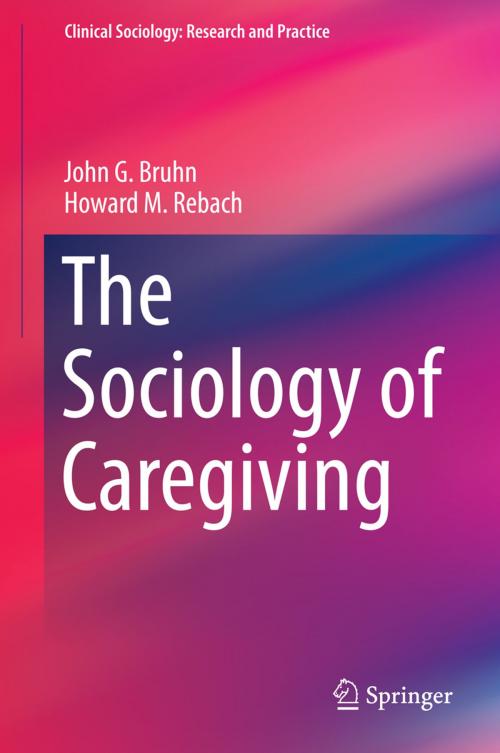The Sociology of Caregiving
Nonfiction, Health & Well Being, Psychology, Clinical Psychology, Social & Cultural Studies, Social Science, Sociology| Author: | John G. Bruhn, Howard M. Rebach | ISBN: | 9789401788571 |
| Publisher: | Springer Netherlands | Publication: | May 27, 2014 |
| Imprint: | Springer | Language: | English |
| Author: | John G. Bruhn, Howard M. Rebach |
| ISBN: | 9789401788571 |
| Publisher: | Springer Netherlands |
| Publication: | May 27, 2014 |
| Imprint: | Springer |
| Language: | English |
This volume conceptualizes caregiving as an emerging sociological issue involving complex and fluctuating roles. The authors contend that caregiving must be considered in the context of the life span with needs that vary according to age, developmental levels, mental health needs and physical health demands of both caregivers and care recipients. As the nature and functions of caregiving evolve it has become a critical and salient issue in the lives of individuals in all demographic, socioeconomic and ethnic categories. This volume frames caregiving as a sociological issue and addresses a number of central concerns, such as:
- Caregiving is a life span experience associated with aging and the roles of spouses and adult children.
- Caregiving involves a complex of social system variables that influence the social support and services to caregivers and care recipients.
- The nature of the relationship among family caregivers, professional caregivers and the care recipient are embedded in their interaction and dynamics influenced by the internal and external variables that inhibit or facilitate the care situation.
- How can caregiving be integrated with a public health agenda?
- What disparities or inequalities exist in caregiving and what are the barriers that sustain them?
- What community-based interventions need to be developed to improve caregiving?
This volume conceptualizes caregiving as an emerging sociological issue involving complex and fluctuating roles. The authors contend that caregiving must be considered in the context of the life span with needs that vary according to age, developmental levels, mental health needs and physical health demands of both caregivers and care recipients. As the nature and functions of caregiving evolve it has become a critical and salient issue in the lives of individuals in all demographic, socioeconomic and ethnic categories. This volume frames caregiving as a sociological issue and addresses a number of central concerns, such as:
- Caregiving is a life span experience associated with aging and the roles of spouses and adult children.
- Caregiving involves a complex of social system variables that influence the social support and services to caregivers and care recipients.
- The nature of the relationship among family caregivers, professional caregivers and the care recipient are embedded in their interaction and dynamics influenced by the internal and external variables that inhibit or facilitate the care situation.
- How can caregiving be integrated with a public health agenda?
- What disparities or inequalities exist in caregiving and what are the barriers that sustain them?
- What community-based interventions need to be developed to improve caregiving?















